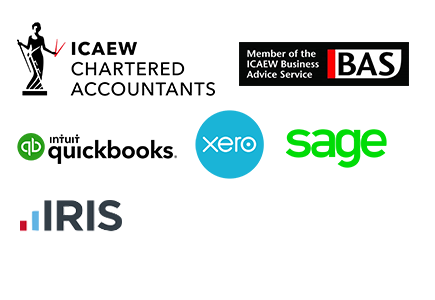
Effective accounting can be tough for any business, but pharmacists can face additional challenges. In such a heavily regulated industry, pharmacists must ensure that they are adhering to both the relevant tax legislation and the regulations set out by the General Pharmaceutical Council (GPC).
In order to get to grips with your tax liability, and minimise it where possible, it’s necessary to have an in-depth understanding of both business accounting principles and the regulations which may apply specifically to pharmacies, pharmacists and others in the medical community.
Structuring your business
How you structure your pharmacy will have a significant impact on your accounting. A self-employed pharmacist will be required to pay income tax, for example, whereas as a pharmacy which has been incorporated will be required to pay corporation tax. Given the different regulations governing these types of businesses, pharmacists will need to determine which is most appropriate for them personally and which gives them better advantages in terms of taxation.

Although some pharmacists are employed by hospitals and medical clinics, this only accounts for approximately 20% of the country’s pharmacy-related workforce. As an employee, you will receive an annual salary and will usually be taxed at source via the Pay-As-You-Earn (PAYE) scheme. For the remaining 80% of pharmacists, however, how you choose to structure your business is important.
Operating as a sole trader
If you choose to operate as a self-employed sole trader, you will need to pay income tax on your earnings. There are a number of business-related expenses which can be deducted from your earnings before tax is calculated, so it’s important to keep comprehensive records of any expenses you plan to claim back.
Self-employed individuals are inherently tied to their businesses, and there is less distinction between their personal assets and their business liabilities than in alternative structures. Whilst you cannot deduct personal expenses from your earnings prior to calculating your tax liability, a self-employed pharmacist can be personally liable for the debts of their business.
If you are faced with a business-related lawsuit, for example, and you are ordered to pay the other party a particular sum of money, these funds could be recovered from your personal assets, if necessary. This means that any of your personal assets, such as your home, could be in jeopardy whilst you’re operating as a sole trader.
Although many pharmacists choose to work on a self-employed basis, the minimal protection of your personal assets can be a significant drawback. Furthermore, self-employed pharmacists may not be able to receive the same benefits as pharmacists who choose to set up their own limited companies.
 Operating as a limited company
Operating as a limited company
When it comes to pharmacy accountancy, setting up a limited company can be advantageous. The current rate of corporation tax is just 19%, meaning it’s substantially lower than the higher and additional rates of income tax. Whilst directors and employees will still need to pay income tax on their salaries, incorporating your pharmacy could be beneficial in terms of reducing your overall tax liability.
In contrast to self-employed set-ups, pharmacists who choose to operate as a limited company are able to protect their personal assets. A limited company remains distinct from its directors, as it is its own legal entity. If the company were unable to pay its debts or faced a costly lawsuit, for example, your personal assets would not be affected.
In addition to this, pharmacists who are directors of their own limited companies can garner particular benefits, such as mobile phones for business use, travel expenses, pensions and life insurance policies. Although self-employed pharmacists can deduct business expenses from their earnings before tax is calculated, directors of limited companies have more scope in terms of which benefits they can claim prior to corporation tax being calculated.
When it comes to remuneration, limited company directors can choose to tax a salary or draw money from the business as a dividend or take a mixture of both. If a director was to take a salary up to the National Insurance contribution threshold and take the remainder as a dividend, for example, they could work within the regulations to reduce their National Insurance contributions to nil and pay a lower income tax rate on their dividend income. Whilst corporation tax will have already been paid on the business’s profits, drawing a director’s income in this way can reduce your personal tax liability and minimise the amount of tax that it paid overall.
When should you incorporate a pharmacy?
Pharmacists work in different ways, and it may make more sense for some to incorporate their business than others. If you are launching a new pharmacy with another individual, for example, you may choose to set up the business as a partnership or as a limited company. Many pharmacists who actually own their pharmacy choose to incorporate their business due to the tax advantages and the protection it affords to their personal assets, as well as the additional scope for employing others.

As an individual pharmacist, however, you may be contracted as an employee or as an independent contractor. If you are an independent contractor, you can choose between working on a self-employed basis or as a limited company. Although you may not hold a direct NHS contract or retain ownership or tenancy of the pharmacy building, this doesn’t prevent you from setting up and trading as a limited company, nor does it prevent you from accessing the usual benefits afforded to company directors.
Accounting for locum pharmacists
To complicate matters even further, many qualified pharmacists choose to work as a locum. Providing temporary services to pharmacies in need of extra staff, locum pharmacists may work from various different locations and routinely travel across towns and cities in order to assist other practitioners.
The vast majority of locum pharmacists are independent contractors unless they are employed by a locum agency. As independent contractors, they are also responsible for managing their own tax liability and can choose to operate as self-employed individuals or limited companies.
An important distinction for locum pharmacists, in terms of accountancy for pharmacists, is how travel expenses are dealt with. For non-locum pharmacists, commuting into your usual place of work is not a deductible business expense. Whilst any pharmacists can claim travel expenses for getting to and from work-related training courses or temporary work sites, regular commuting is not considered to be a valid business expense when it comes to pharmacy accountancy.
In the case of locum pharmacists, however, they don’t typically have a regular workplace. As they provide temporary and short-term solutions to pharmacies with staffing issues, they are able to cite their travel expenses as a deductible business expense.
Is incorporation right for you?
With many advantages associated with incorporation, it may seem like the best solution for your business and personal needs. However, the rules regarding taxation do change regularly and there have been modifications to how independent contractors are treated under relevant regulations.
In a bid to prevent individuals from establishing themselves as independent contractors, but acting as employees to all intents and purposes, HMRC introduced the IR35, for example. Although this does place additional requirements on individuals, it is still possible to operate as a limited company if you are an independent contractor, providing you can provide evidence to support your independent contractor status, if you are asked to do so.
When pharmacists launch limited companies, they are often referred to as personal service companies and the recent changes to the Budget affect how the public sector can contract with these companies. If a public sector uses a personal service company, for example, the ‘engager’, or relevant public sector, must take on the responsibility for paying the tax and National Insurance contributions for locums they use who are operating as personal service companies under an agency.
Whilst this sounds complex, it actually places additional burdens on the public sector, rather than the private service company. In this instance, the locum pharmacist will receive a credit to confirm that tax and NI contributions have already paid in relation to that portion of their earnings so that they are not at risk of being taxed twice.
 Getting professional pharmacy accountancy advice
Getting professional pharmacy accountancy advice
Due to the high level of regulation surrounding the pharmaceutical industry and the complexity of tax law in the UK, it’s always sensible to seek professional advice when it comes to dealing with your personal tax liability and business structure.
Choosing to seek assistance from an experienced pharmacy accountancy firm or tax adviser will ensure you benefit from the most up-to-date advice and are operating within the regulations set out by HMRC. Furthermore, when you use specialist pharmacy accountants, you can engage in proactive tax planning to ensure that any future business or work-related decisions are made with your tax liability in mind. With appropriate advice and assistance, all pharmacists can find efficient and effective ways to manage their accounting requirements, tax liability and business operations.
Contact us today for an initial consultation to talk about how you can pay less tax if you’re a pharmacist. We work closely with pharmacists, dentists and doctors to help them keep their tax and accounting records up-to-date. Call us on 020 8872 9138 or request a callback here.







